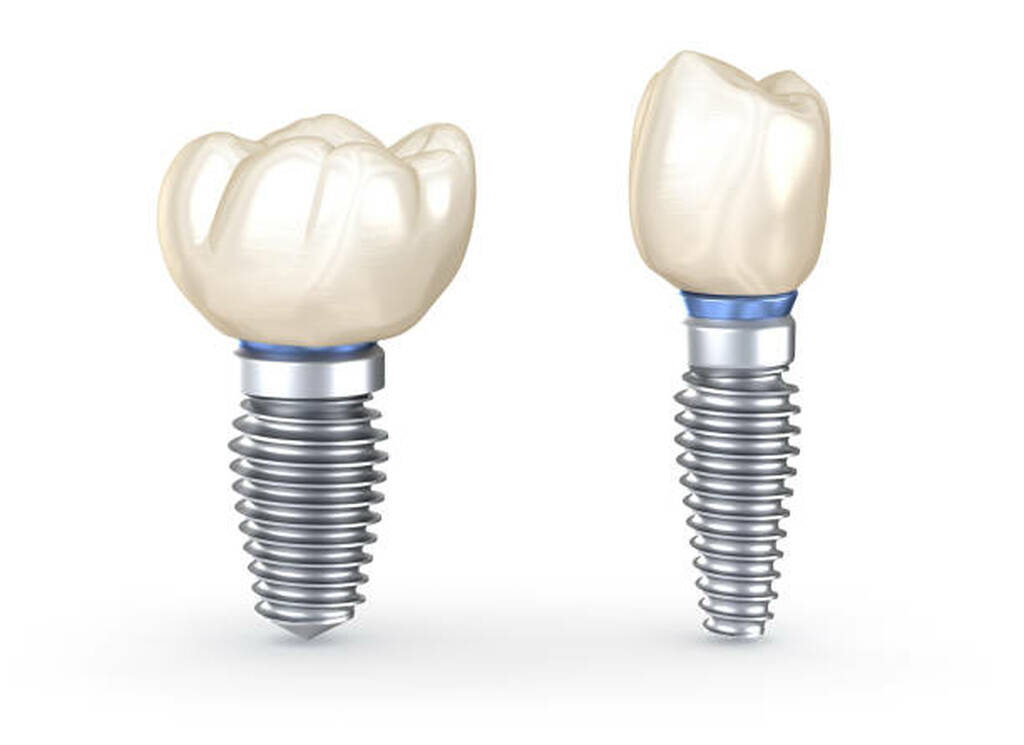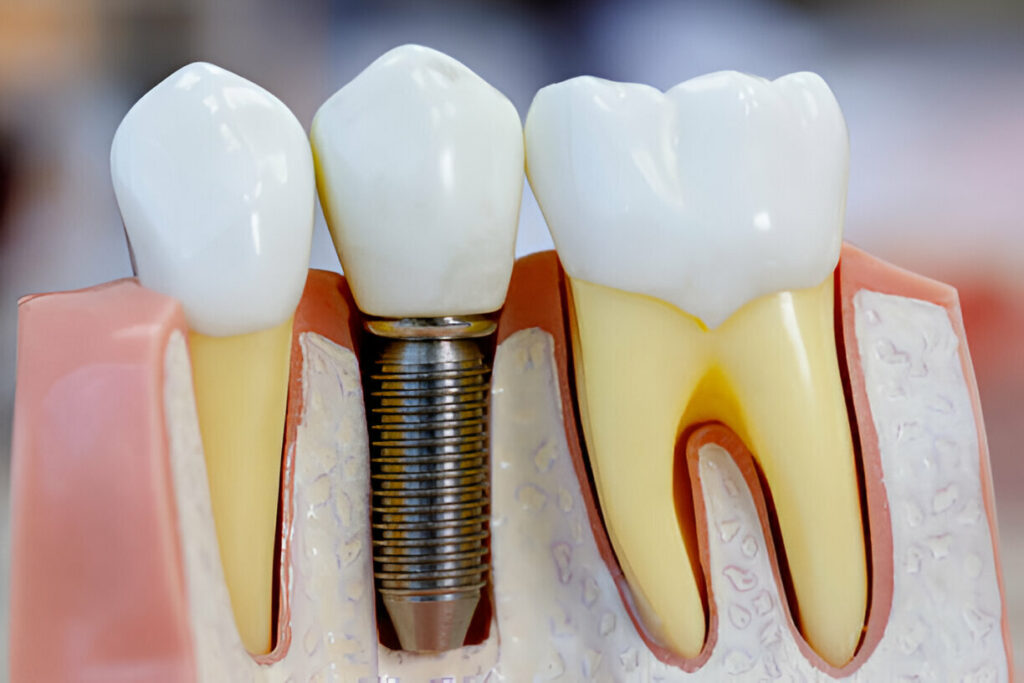Tooth loss can impact more than just your smile – it can lead to speech difficulties, chewing problems, bone loss, and a drop in self-confidence. Choosing the right tooth replacement option is essential for long-term oral health and quality of life.
Tooth Replacement Options: Dentures and Dental Implants
The two most common solutions for missing teeth are dentures and dental implants. Understanding each method’s function, benefits, and limitations can help guide your decision.
Dentures
Dentures are removable appliances designed to replace missing teeth and restore your smile. They come in several types and can be either full or partial, depending on whether you’re missing all or just a few teeth.
What Happens During a Dental Implant Surgery in St Helens?
Types of Dentures
- Full Dentures: Used when all teeth are missing.
- Partial Dentures: Suitable when some natural teeth remain.
Composition and Function
Made from acrylic, metal, or a combination of materials, dentures fit over the gums to mimic natural teeth. However, they rest on the gums and don’t stimulate the jawbone.
Pros and Cons of Dentures
- Pros: Relatively affordable, non-invasive, customisable.
- Cons: May slip or move, require adhesives, can affect taste and speech, do not prevent bone loss.
Dental Implants
Dental implants are titanium posts surgically inserted into the jawbone to serve as artificial tooth roots. They support crowns, bridges, or dentures securely in place.
How Long Does It Take to Heal After Dental Implant Surgery?
What Are Dental Implants?
Implants act as a permanent base for replacement teeth. Over time, they fuse with the bone in a process called osseointegration, making them a stable and durable solution.
Composition and Function
An implant typically consists of three parts: the post (inserted into the bone), the abutment (connector), and the crown (visible tooth). This triple structure ensures natural look and function.
Benefits of Dental Implants
- Prevents jawbone deterioration
- Provides superior stability and comfort
- Allows natural speech and chewing
- Long-lasting with proper care
Dental Implant Maintenance Tips from St Helens Experts
Pros and Cons of Implants
- Pros: Permanent, bone-preserving, stable, realistic appearance.
- Cons: Higher cost, surgical procedure required, longer healing time.
Comparing Dental Implants and Dentures
Cost
Dentures generally cost less upfront, while implants are a bigger investment initially but may offer better long-term value.
Maintenance
Dentures require daily removal and cleaning. Implants are maintained like natural teeth with brushing and flossing.
Complications
Dentures may lead to gum irritation or slippage. Implants carry surgical risks but are less likely to cause day-to-day problems after healing.
Function and Feel
Implants feel more natural and allow easier eating. Dentures can feel bulky and may limit bite strength.
Dental Implants vs. Dentures: Which Is Better in St Helens?
Qualifying for Treatment
Lifestyle and Dietary Habits
Active lifestyles and varied diets may benefit more from implants. Denture users may need to adjust what they eat.
Bone Health
Healthy jawbone is required for implants. Bone loss may call for grafting or make dentures a more suitable option.
Oral Hygiene Commitment
Implants demand consistent oral hygiene. Those unable to maintain this may find dentures more practical.
Diving into the Dental Implant Procedure
Initial Consultation and Preparation
Your dental team will evaluate bone health and overall oral condition. X-rays may be taken to plan implant placement.
When Bone Grafting Is Required
If your jawbone is too soft or thin, bone grafting might be necessary to support the implant. Healing can take several months.
Placing the Dental Implant
The titanium post is surgically inserted into the jawbone. Local anaesthetic is used, and discomfort typically subsides within a few days.
Waiting for Bone Growth
The implant integrates with your bone over 3–6 months, forming a solid base for the replacement tooth.
Placing the Abutment
Once bonded, a small connector – the abutment – is attached to the post, connecting the implant to the crown.
Choosing Your New Artificial Teeth
Custom crowns, bridges, or dentures are created to match your natural teeth in shape and colour.
How Much Do All-on-4 Dental Implants Cost in The UK?
After the Procedure
Post-Surgery Care
There may be mild swelling, bruising or soreness. Pain can usually be managed with over-the-counter medication.
Results
Implants offer long-lasting, life-changing results, restoring both function and aesthetics to your smile.
Smile Makeover and Cosmetic Options
Implants are often part of a smile makeover plan, which may include other cosmetic treatments like whitening or orthodontics. This holistic approach ensures your smile is both functional and aesthetically pleasing.
General, Cosmetic, Align, Replace, Repair Services
In addition to implants, many practices offer general check-ups, cosmetic enhancements, teeth straightening (align), tooth replacement and repairs. Comprehensive care ensures all your dental needs are covered in one place.
Find Us
We are conveniently located in St Helens, with easy access for patients across Merseyside. Parking and public transport options are available nearby.
Connect With Us
Stay updated by following us on our social media platforms or signing up for our newsletter. We’re here to answer any questions and support you throughout your dental journey.
Frequently Asked Question
How painful is dental implant surgery?
Most patients report minimal discomfort thanks to local anaesthetic and modern techniques. Any post-op pain is generally manageable with over-the-counter medications.
How long does the entire implant process take?
From consultation to final restoration, it typically takes 3 to 6 months depending on bone health and healing time.
Can anyone get dental implants?
While most adults can, suitability depends on individual health and bone quality. An assessment with a dental professional will confirm if you’re a candidate.
How long do dental implants last?
With good oral hygiene and regular check-ups, implants can last 20 years or more—often a lifetime.
What foods should I avoid after implant surgery?
Stick to soft foods like soups, yoghurts, and pasta for the first few days. Avoid hot, crunchy, or spicy items that could irritate the surgery site.



